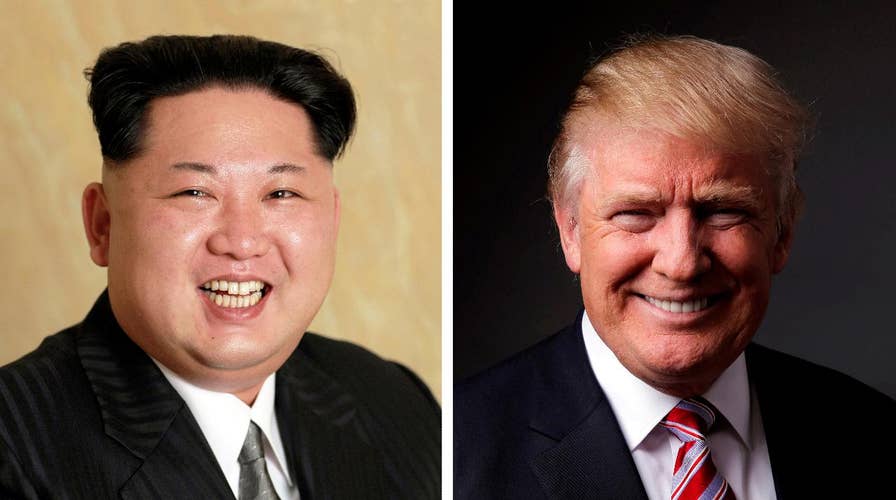South Korea: Trump has agreed to meet Kim Jong Un by May
South Korean official says Kim Jong Un has extended an invitation to President Trump and has pledged North Korea will refrain from nuclear testing.
Thursday night's shocking announcement of an upcoming meeting between President Trump and North Korean dictator Kim Jong Un to discuss denuclearization of the North is a direct result of President Trump's actions that have fundamentally changed the dynamics of the North Korea crisis.
President Trump's tough rhetoric has led Kim to conclude that the use of force by the U.S. really is on the table and that the Trump administration can’t be played for fools, like prior American administrations.
When President Trump warned at the United Nations last September that he would “totally destroy North Korea” if it threatened the U.S. or its allies, the president got the attention of North Korean leaders – and probably scared the hell out of them.
Recent talk of a U.S. “bloody nose” strike against North Korea and President Trump’s warning that he will move to “Phase Two” if tough new sanctions failed did not go unnoticed in the North Korean capital of Pyongyang.
The Trump administration also succeeded in winning approval of much tougher U.N. sanctions against North Korea, with far better international compliance. These sanctions are starting to hurt.
China is changing its North Korea policy due to unrelenting pressure from President Trump and a growing belief that North Korea has become a security liability to China. Chinese officials also are worried about radiation from North Korean nuclear tests drifting into their country.
We must be realistic. Given North Korea's history (and what it learned from the Iran nuclear talks), Pyongyang probably hopes to use negotiations to split the U.S. from its partners, buy time to continue its nuclear and missile programs, and loosen sanctions.
Kim will likely seek economic and energy aid without making significant concessions. The North's offer to denuclearize may be linked to unacceptable demands, such as the U.S. withdrawing troops from South Korea.
North Korea has a long way to go to prove its sincerity. The U.S. must demand the North do this by taking the following actions:
? Halt nuclear and missile tests (agreed to by the North for now).
? Allow robust inspections of all nuclear and missile sites.
? Shut down and disassemble nuclear and missile facilities.
? Declare and disassemble its nuclear weapons.
? Send nuclear fuel and spent nuclear fuel rods out of the country.
? Disclose all information about its nuclear weapon and missile programs.
President Trump should only go through with the Kim meeting in May if North Korea agrees to all of the above steps and makes concrete moves toward denuclearization before the meeting. The U.S. also should maintain pressure and sanctions until North Korea begins to make these moves.
In the past, U.S. diplomats were so obsessed with getting nuclear deals with Iran and North Korea that they repeatedly agreed to weak agreements and overlooked cheating. Both North Korea and Iran were rewarded with concessions after producing fraudulent declarations of their nuclear programs.
The Trump administration must hold out for good faith negotiations by the North and be prepared to walk away if talks prove to be a ruse.
We will soon know whether Kim Jong Un is actually prepared to denuclearize and normalize relations with the United States. He could waver and the U.S. may need to continue to increase the pressure.
But even if the upcoming talks are unsuccessful, President Trump deserves enormous credit for creating an opportunity that no one expected to peacefully resolve the North Korea crisis.









































